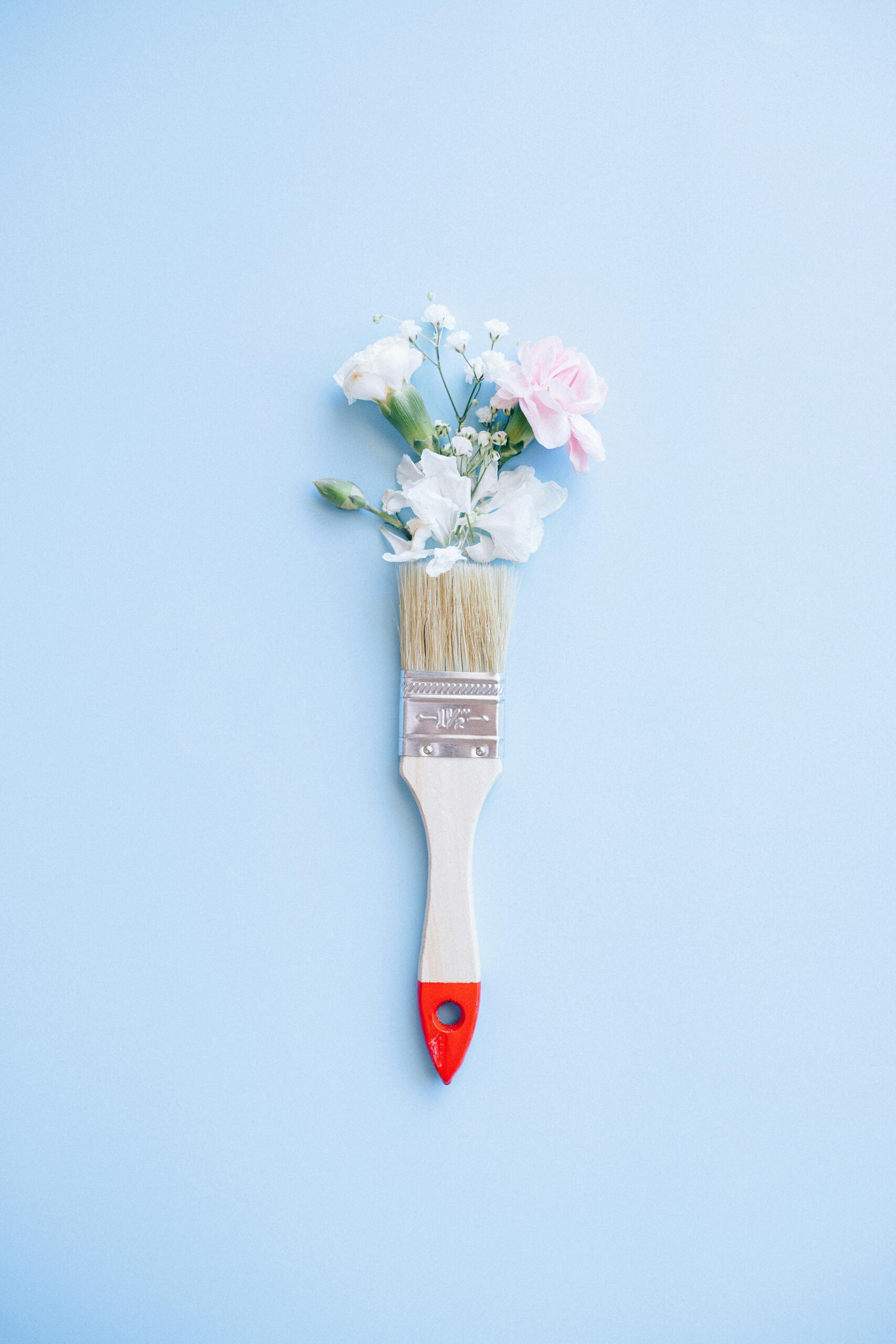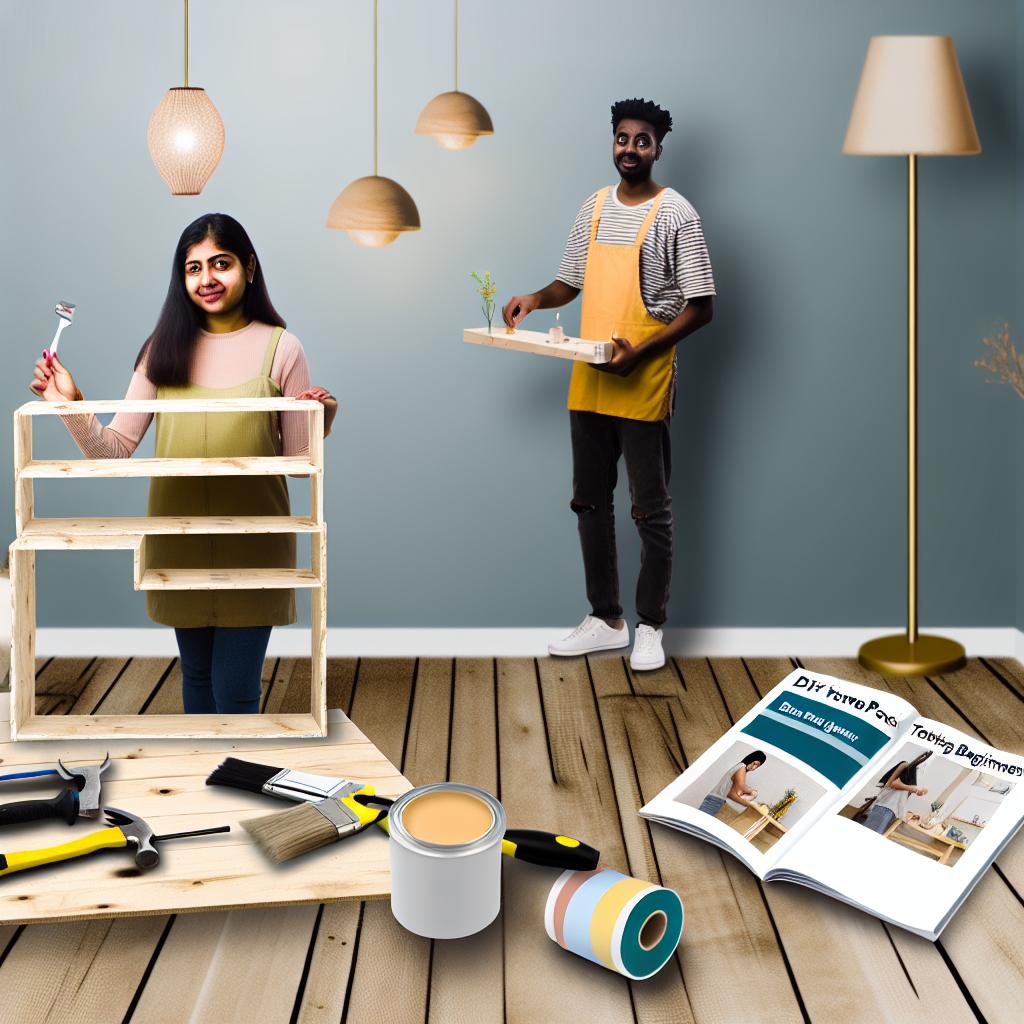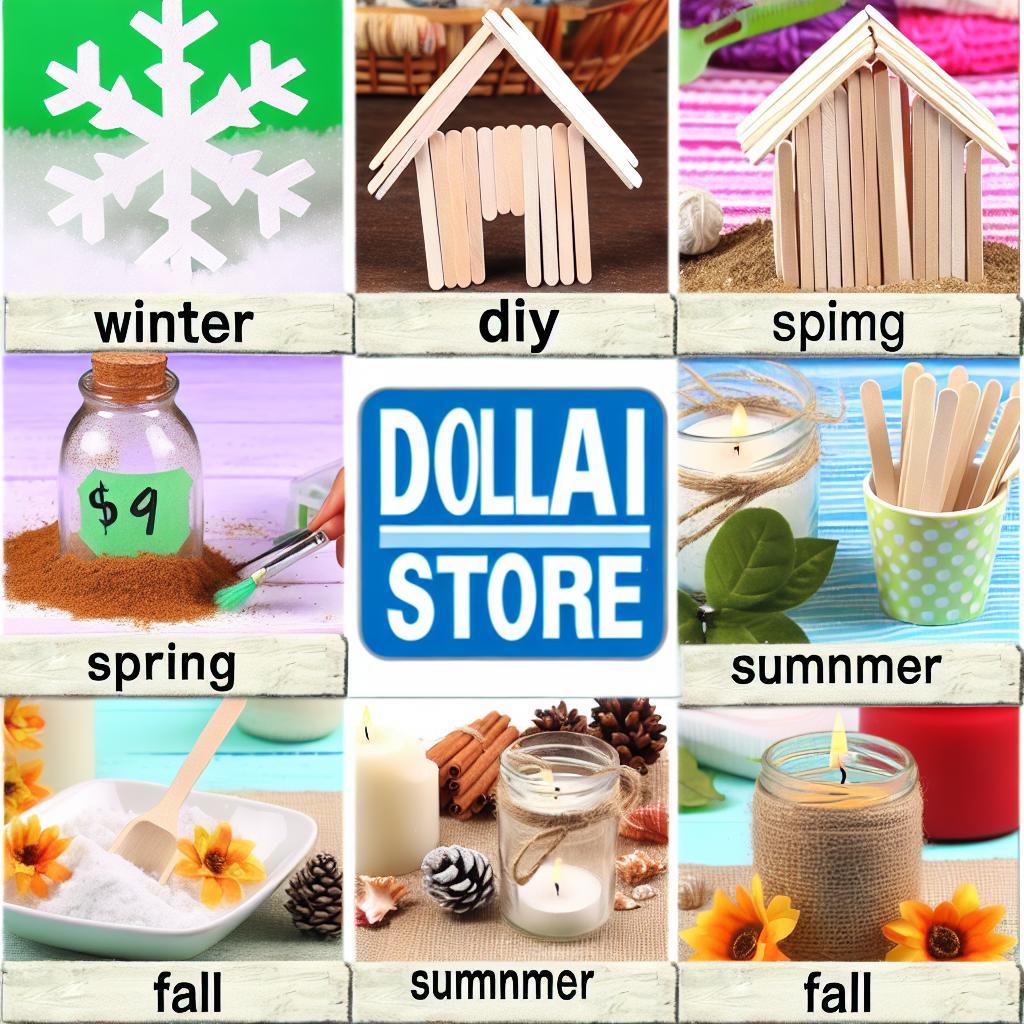DIY Projects for Modern Home Designs
In today’s fast-paced world, creating a modern and stylish home doesn’t have to break the bank. Embracing DIY modern design allows homeowners to personalize their spaces while keeping up with the latest trends. Whether you’re a seasoned DIY enthusiast or just starting, incorporating sleek and minimalist projects can significantly elevate your home’s aesthetic. This guide explores current design trends, offers inspiring project ideas, lists essential materials, and provides a detailed step-by-step guide to help you achieve a contemporary and chic living space through home décor DIY.
Modern Design Trends
Modern home design is characterized by its emphasis on simplicity, functionality, and clean lines. Here are some of the top trends shaping contemporary interiors:
- Minimalism: Less is more. Minimalist design focuses on decluttering spaces, using neutral color palettes, and incorporating functional furniture.
- Natural Materials: Incorporating wood, metal, and stone brings warmth and texture to modern spaces.
- Open Floor Plans: Creating open, versatile spaces that enhance natural light and airflow.
- Geometric Patterns: Using shapes and patterns in décor elements to add visual interest.
- Smart Home Integration: Incorporating technology seamlessly into home design for convenience and efficiency.
- Sustainable Design: Using eco-friendly materials and energy-efficient solutions to create environmentally responsible homes.
Staying updated with these trends can help you plan DIY projects that not only enhance your home’s appearance but also improve functionality and sustainability.
Project Ideas
Here are some sleek and modern DIY projects that align with minimalist and contemporary aesthetics:
1. Floating Shelves
Floating shelves are both functional and stylish, providing storage without the bulk of traditional shelving units.
2. Concrete Planters
Concrete planters add an industrial touch and can be customized to fit any space.
3. Geometric Wall Art
Create striking wall art using geometric shapes and a neutral color scheme to complement any room.
4. LED Light Strips
Incorporate LED light strips under cabinets or around furniture to create a modern ambiance.
5. Minimalist Coffee Table
Build a sleek coffee table with clean lines and a simple design to anchor your living room.
6. Customized Storage Solutions
Design storage units that are both practical and visually appealing, helping maintain a clutter-free environment.
These projects not only enhance the visual appeal of your home but also contribute to a more organized and efficient living space. For more inspiration, explore our creative DIY craft projects for home improvement.
Materials Needed
Depending on the projects you choose, the materials may vary. Here’s a general list of materials commonly used in modern home décor DIY projects:
- Wood planks or boards
- Metal brackets and fasteners
- Concrete mix and molds
- Paint and primer
- Sandpaper and finishing supplies
- LED light strips and wiring
- Geometric templates or stencils
- Brushes, rollers, and painting tools
- Screws, nails, and adhesives
- Tools such as saws, drills, and measuring tapes
For specific projects, additional specialized materials might be required. Always refer to the individual project guides for detailed material lists.
Step-by-Step Guide
Building Floating Shelves
Floating shelves are a quintessential modern design element, offering a clean and unobtrusive storage solution. Follow this step-by-step guide to create your own:
Materials Needed
- Wood planks (preferably hardwood like oak or walnut)
- Metal brackets or hidden shelf supports
- Sandpaper
- Paint or stain (optional)
- Screws and wall anchors
- Measuring tape and level
- Drill and screwdriver
Tools Needed
- Saw (if cutting wood to size)
- Painter’s tape
- Pencil
Step 1: Measure and Cut the Wood
Determine the desired length of your floating shelves based on the wall space available. Use a saw to cut the wood planks to the appropriate size.
Step 2: Sand the Wood
Sand all surfaces of the wood planks to ensure a smooth finish. This step is crucial for both aesthetics and safety.
Step 3: Finish the Shelves
Apply paint or stain to the wood planks if you wish to customize the color. Allow sufficient drying time before proceeding.
Step 4: Install the Brackets
Using a level, mark the desired height and position of the shelves on the wall. Drill holes and insert wall anchors as needed. Attach the metal brackets or hidden shelf supports securely to the wall.
Step 5: Mount the Shelves
Place the finished wood planks onto the installed brackets. Ensure they are level and securely fitted.
Step 6: Final Touches
Add decorative items or functional storage solutions to your new floating shelves. This not only enhances the look but also adds practicality to the space.
Congratulations! You’ve successfully created sleek and modern floating shelves that embody DIY modern design. For more DIY projects to improve your home’s value, explore our comprehensive guides and tips.
Creating Concrete Planters
Concrete planters are durable, stylish, and perfect for adding an industrial edge to your home décor. Here’s how to make your own:
Materials Needed
- Concrete mix
- Water
- Molds (silicone molds work best)
- Includes decorative add-ins like colored concrete or aggregates (optional)
- Release agent (like cooking spray)
Tools Needed
- Mixing container
- Stirring stick
- Protective gloves and mask
Step 1: Prepare the Molds
Apply a release agent to the inside of your molds to ensure easy removal once the concrete has set.
Step 2: Mix the Concrete
Follow the instructions on the concrete mix package. Combine the concrete with water in the mixing container until you achieve a smooth, pourable consistency.
Step 3: Pour into Molds
Carefully pour the mixed concrete into the prepared molds. Gently tap the molds to release any air bubbles, ensuring a smooth surface.
Step 4: Add Decorative Elements (Optional)
If desired, mix in colored concrete additives or embed small aggregates to create unique textures and colors.
Step 5: Let It Set
Allow the concrete to cure as per the manufacturer’s instructions, typically 24-48 hours.
Step 6: Remove from Molds
Once fully set, carefully remove the concrete planters from the molds. Sand any rough edges for a polished finish.
Step 7: Finishing Touches
Apply a sealant if desired to protect the concrete and enhance its appearance. Your modern concrete planters are now ready to use!
These concrete planters not only serve as functional items but also act as statement pieces that enhance your home décor DIY projects. For more innovative ideas, check out our creative craft projects for home improvement.
Installing LED Light Strips
LED light strips can transform the ambiance of any room, adding a modern and dynamic element to your home. Follow these steps to install your own:
Materials Needed
- LED light strips
- Power supply compatible with the LED strips
- Remote control (if not included)
- Mounting clips or adhesive backing
- Wire connectors (if necessary)
Tools Needed
- Measuring tape
- Scissors
- Drill (if securing with clips)
- Cleaning supplies (to prepare the surface)
Step 1: Plan Your Layout
Decide where you want to install the LED strips. Common locations include under cabinets, along shelves, or behind televisions.
Step 2: Measure and Cut the Strips
Measure the length required for each installation area. Cut the LED strips along the designated cut lines to fit your space.
Step 3: Prepare the Surface
Ensure the surface where you’ll attach the LED strips is clean and dry. Use cleaning supplies to remove any dust or grease.
Step 4: Attach the LED Strips
Remove the adhesive backing and carefully stick the LED strips to the prepared surface. Use mounting clips for additional support if needed.
Step 5: Connect to Power
Connect the LED strips to the power supply, ensuring all connections are secure. Use wire connectors if necessary to extend the reach.
Step 6: Test the Lights
Power on the LED strips to ensure they are functioning correctly. Adjust the placement as needed for optimal lighting effects.
Step 7: Configure Settings
Use the remote control to adjust brightness, color, and lighting modes to suit your preference and the room’s ambiance.
Installing LED light strips is a simple yet impactful home décor DIY project that enhances the modern look of your space. For more smart and innovative DIY ideas, visit our top DIY home improvement projects.
Conclusion
Embracing DIY modern design projects is an excellent way to infuse your home with contemporary style while personalizing each space to reflect your taste. By staying informed about the latest design trends and selecting projects that align with minimalist and functional aesthetics, you can create a sophisticated and welcoming environment. Whether you’re building floating shelves, crafting concrete planters, or installing LED light strips, these home décor DIY projects offer both aesthetic appeal and practical benefits. Explore our range of DIY ideas to continuously enhance and modernize your home, making it a true reflection of your unique style and creativity.
For further inspiration and detailed guides on a variety of creative DIY craft projects, natural remedies, and more, visit myhomediyguide.com today!


